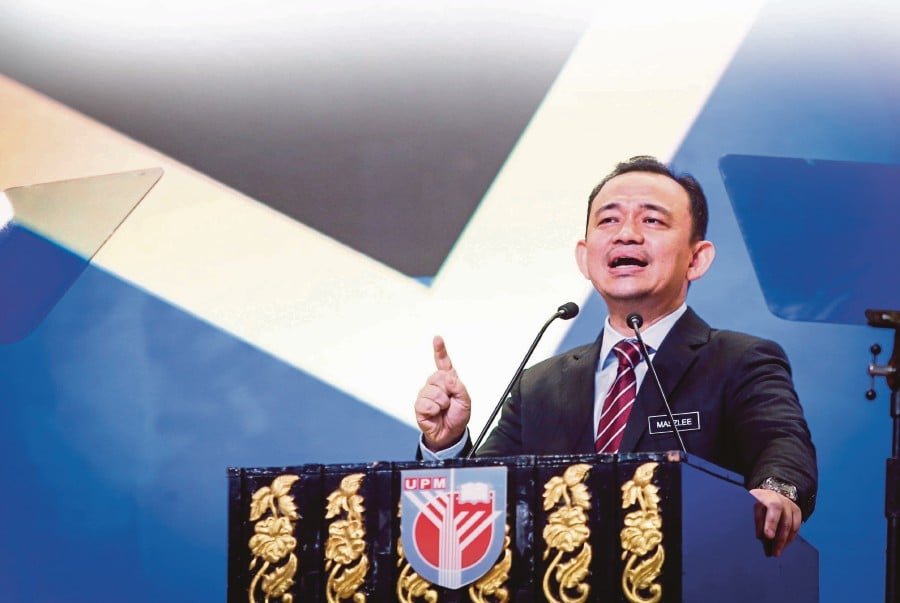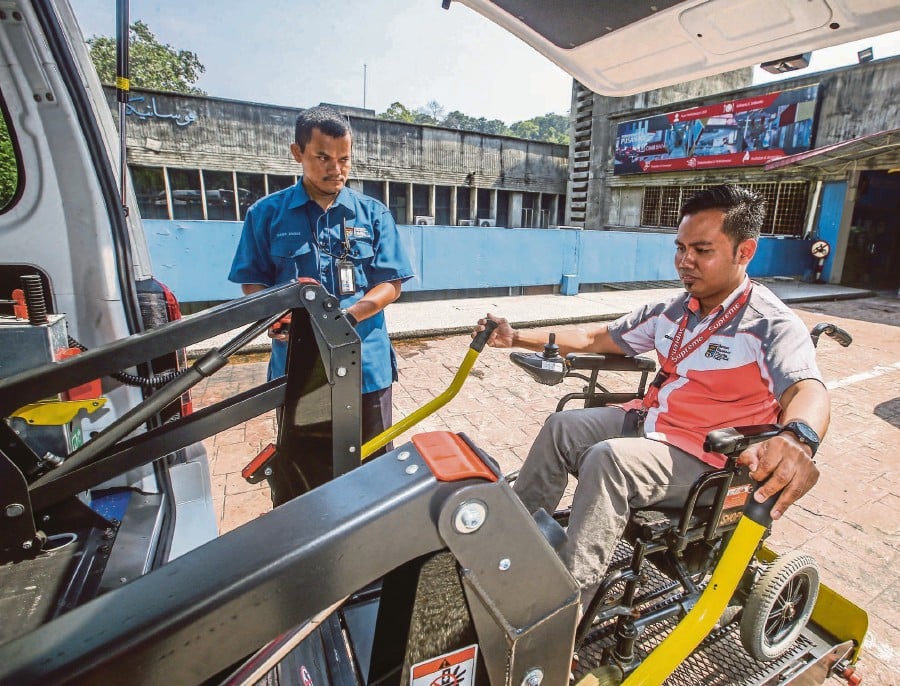
WITH the year fast drawing to a close, Higher ED looks back at the highlights and events that have shaped and influenced the tertiary education space.
This year, Malaysia took great strides to provide inclusivity and quality education to various levels of the society.
Increased pathways were created for access into education at various higher education institutions (HEIs). There was a keen focus on making tertiary education provide graduates with relevant skills and knowledge that would fit both industry demands and society needs as well as push further the pursuit of knowledge.
These were all drawn up via a clear framework stipulated in the Education Minister’s 2019 Mandate that was unveiled in January where four key directions were cited for higher education ― quality, autonomy, collaboration and internationalisation ― that aimed to bring back credibility to universities.
In preparing students to become society’s troubleshooters, *universities must create collaborations with various parties, such as schools, polytechnics and vocational colleges.
For Technical and Vocational Education and Training (TVET), the ministry would continue to improve its institutional capabilities to be on par with other educational pathways.
A harmonised accreditation system with quality assurance would be established to enable student mobility in TVET institutions.
The quality and delivery of TVET programmes would be increased to improve the skills of graduates through an industry-led approach, removing duplication of programmes and resources, increasing cost-effectiveness and expanding TVET funding.

Plans on access, wider pathways for furthering education, autonomy and quality education were generally made good on as the year progressed.
SPECIAL ROUTES
The Education Ministry announced special pathways to public universities for four groups, namely, people with disabilities, athletes, Orang Asli and those in the B40 group in early March.
Students from these priority groups do not have to compete with the mainstream group to pursue their tertiary studies.
In line with the ministry’s Education for All concept, this initiative follows in the footsteps of developed countries in prioritising the admission of athletes into varsities.
Some 51,191 students from B40 group benefited from the special routes to public universities and special training institutes, of which 32,282 made it into public universities.
HEIGHTENED FOCUS ON TVET
To formulate more relevant policies to implement the TVET agenda according to industry needs, the TVET Empowerment Committee named Maszlee chairperson in May.
Later in August, the committee (JKKPTVET) was formed in line with the government’s hopes to make TVET a mainstream choice, instead of an alternative. The move is expected to help create a skilled workforce by 2030.
ALTERNATIVE POSTGRAD PATHWAYS
In July, the Malaysian Qualifications Agency revealed that there would soon be alternative pathways to provide opportunities for working adults and undergraduates to have a PhD qualification.
MQA chief executive officer Datuk Dr Rahmah Mohamed said the agency was carrying out an implementation study of the next phase of the Accreditation of Prior Experiential Learning (APEL) programme where work experience could be translated into a masters or doctoral degree, or speed up the process of getting a PhD.
Defined as a systematic process involving identification, documentation and assessment of prior experiential learning, the programme thus far has created access to certificate, diploma, bachelor’s degree and master’s degree study programmes to individuals with working experience but lack or are without proper academic qualifications.
MQA targeted to introduce APEL T-8 and APEL Q next year that would give access to PhD level qualifications. APEL T-8 is an extension of APEL A, which provides higher education opportunities based on a person’s working experience.
APEL Q awards master’s and doctoral level academic qualifications without class attendance.
The purpose of the various initiatives is to ensure there is a growth in the number of postgraduate degree holders, in line with the country’s aspiration of becoming a high-income nation.
BUDGET 2020
To level up human capital in the country, Finance Minister Lim Guan Eng, when tabling Budget 2020 in Parliament in October, announced an allocation of RM64.1 billion in 2020 for education ― reflecting the government’s commitment to provide quality education at different stages of life for the rakyat.
From the sum, a whopping RM5.9 billion is dedicated to mainstreaming TVET which include, among others, funding to strengthen the synergies between the public and private sectors through increased allocation for State Skills Development Centres and Public Skills Training Institutions as well as expanding pathways for TVET graduates to pursue further studies and secure jobs.
To encourage adult learning, Lim said the Employees Provident Fund will be allowed to facilitate the withdrawal for qualifications attained at certificate level, especially for accredited programmes that are in line with the nation’s IR4.0 aspirations.
The withdrawal scheme will include members’ parents and spouse.
A RM20 million allocation will be made available to be matched by another RM20 million from the Human Resource Development Fund towards having working adults take up professional certification examinations in fields relating to IR4.0.
Emphasis on learning opportunities under MARA and Yayasan Peneraju Pendidikan Bumiputera for low-income and rural bumiputeras through education institutions such as Kolej GIATMARA and Universiti Kuala Lumpur will be continued with an allocation of RM1.3 billion for education institutions under MARA for 2020, with a further RM2 billion allocated for student loans, benefiting 50,000 students. In addition, RM192 million is also allocated for professional certification programmes under Yayasan Peneraju.
To drive economic growth in the digital era, the government encourages the provision of technology scholarships, training and upskilling for digital skills for communities in need through the concept of Digital Social Responsibility (DSR).
DSR is the commitment by businesses to contribute to digital economic development while improving the digital skills of the future workforce.
Enhancing the research and development framework was also cited as a key strategy to drive economic growth in the new economy.
For that, Lim announced that the government will allocate RM30 million for R&D matching grants for collaborations with industry and academia to develop higher value-added downstream use of palm oil, specifically tocotrienol in pharmaceuticals and bio-jet fuel.
“To promote commercialisation of R&D from the public sector, research universities, beginning with UM, will establish a one-stop Innovation Office to transform intellectual property into commercially exploitable opportunities,” said Lim.
STUDY PATHWAYS
In November, the Education Ministry announced the replacement of the science/arts streaming system in upper secondary into a system where students can choose from 89 elective subjects grouped in two packages: STEM (Science, Technology, Engineering and Maths), and Arts and Humanities under the new Secondary Schools’ Standard Curriculum (Upper Secondary) or KSSM Menengah Atas.
This will give students a taste of what they might pursue at tertiary education level and maybe even get a headstart in their desired future careers.
In a briefing, Education Ministry deputy director-general (policies and development) Dr Habibah Abdul Rahim advised students to pick their subjects wisely because it paves the way for their future.
She added that the students can change subjects midway through schooling but noted that it will not be an easy feat because there will be a lot of catching up to do.
Source: Excerpts from https://www.nst.com.my/education (Focus on TVET)
Comment: * University Tun Abdul Razak (UniRazak), an IPTS, has signed an MOU with ISE Education Sdn Bhd, a JPK accredited institute for VTO & induction course programmes, to provide a unique pathway for TVET/SKM/DKM graduates & experienced TVET personnel to further studies in UniRazak, even without SPM.
The executive URise program (Professional Diploma & Executive Bachelor):
1. Acts as a bridging program to matriculate TVET/SKM/DKM graduates to university.
2. Provides an opportunity for TVET/SKM/DKM graduates to enhance career, especially to a managerial position with better leadership skills.
3. Elevates social status of TVET/SKM/DKM graduates and experienced skills personnel.
